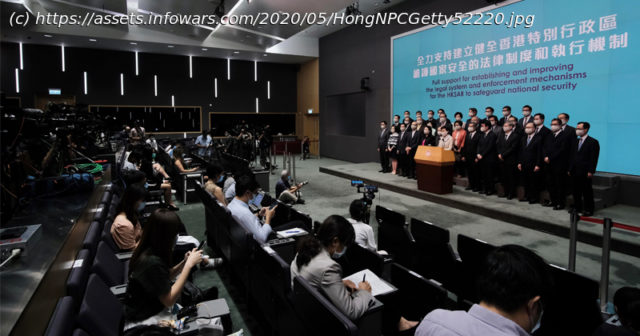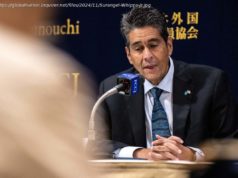Beijing has no intention of loosening its grip on city
The Chinese National People’s Congress is set to pass a new law designed to force Hong Kong into submission.
The move clearly shows the world that Beijing intends to have the last word, says DW editor Dang Yuan.
As 2,897 representatives from across China gathered in the Great Hall of the People for the annual Chinese National People’s Congress on Friday, the first point of order was not the seemingly all-consuming topic of the coronavirus pandemic. Instead, it was a domestic policy issue to address “national security risks in Hong Kong” — an unprecedented move for China’s pretend parliament, one that clearly showed the world that Beijing has no intention of loosening its grip on Hong Kong.
Hong Kong’s Basic Law, a type of constitution, grants the city the right to autonomy for at least 50 years under the “one country, two systems” model, put into place when the former British colony was returned to China in July 1997. The Basic Law envisions an autonomous Hong Kong with independent, Western-style democracy based on the rule of law. But the document itself has weaknesses: for example, it doesn’t set any specific deadlines for the introduction of direct elections for city administrators or parliamentarians.
Push to punish traitors
Article 23 of the document deals with the issue of national security, and it, too, has problems. The controversial legislation requires Hong Kong administrators to use local laws to arrest and prosecute individuals for “any act of treason, secession, sedition, subversion against the Central People’s Government.






